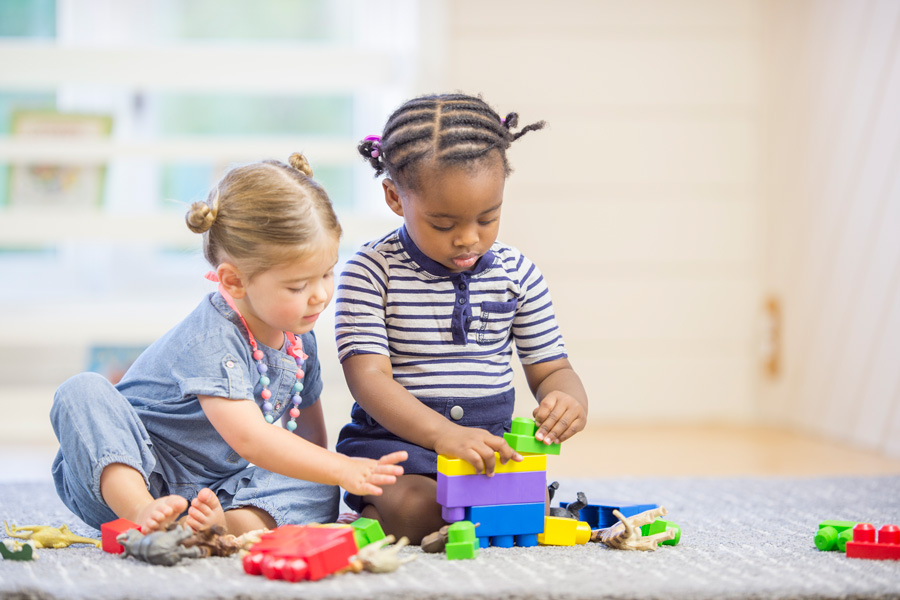Health and Family
-

C 1053-02
Prime Times for Learning
Research in brain development shows there are certain windows of opportunity, known as sensitive periods, when certain parts of the brain develop most quickly. These windows are prime times for learning certain skills because the brain is ready to build networks of connections in response to what the five senses absorb. Here are some of those prime times, what to expect, and what you can do to improve brain development.
Diane Bales
|
-

All parents want their children to be smart and successful. Researchers have found that a child’s brain continues to develop long after birth. Parents can do many things to support their child’s healthy brain development, beginning before birth and continuing until their child is an adult. This publication explains some of the things you can do to ensure healthy brain development for your child.
Diane Bales
|
-

Child care providers play an important role in nurturing children’s healthy brain development. When it comes to supporting healthy brain development, the type of child care is less important than the quality of care a child receives. This publication will help you understand the components of quality child care and the effects of low-quality child care on brain development.
Diane Bales
|
-

C 1053-05
Learning Language
If you’re like most adults, learning a new language can be challenging. But the average baby learns a new language relatively easily. Babies learn language by hearing other people speak around them and by practicing making those sounds. Here is some information on how babies learn language and ways you can help your baby.
Diane Bales
|
-

C 1053-06
The Role of Music in Brain Development
Children who grow up listening to music develop strong music-related connections in the brain. Some of these music pathways actually affect the way we think. Listening to classical music seems to improve our spatial reasoning, at least for a short time. And learning to play an instrument may have an even longer effect on certain thinking skills. Here is some information on how music affects our brains and ideas on how to help nurture children’s love of music.
Diane Bales
|
-

C 1053-07
Is Breast Milk Best?
Deciding how to feed your baby is one of the most important decisions expectant parents make during pregnancy. The first year of your baby’s life is a time of rapid growth. By making sure your
baby gets the nourishment he needs, he’ll be able to develop to his fullest potential. This publication address questions you may have regarding breast- vs. bottle-feeding and what you can to do enhance your baby’s brain development.Diane Bales
|
-

C 1053-08
What to Eat When You’re Expecting
Your diet is important throughout your pregnancy. However, there are some special needs to consider during each trimester. You can help your baby get a healthy start in life by eating a variety of nutritious foods and making sure you gain enough wait. This publication explains what to eat for each trimester and offers insight on eating the right foods.
Diane Bales
|
-

C 1053-09
Nurturing Positive Relationships
Over the first months of life, babies build relationships with the adults who care for them. These early attachment relationships matter. Babies who form warm, loving relationships feel secure exploring and learning. Babies who live in an unpredictable world tend to form insecure attachments. They learn that the world is unreliable and expect later relationships to be negative. Here’s what you need to know about attachment and what you can do to help your baby build secure attachment relationships.
Diane Bales
|
-

Play is one of the most essential activities babies do. Through play, babies and young children have the opportunity to experience new things and practice existing skills, which strengthens networks of
brain connections. This publication explains what babies learn while playing and what you can do to help build brain connections through play.Diane Bales
|